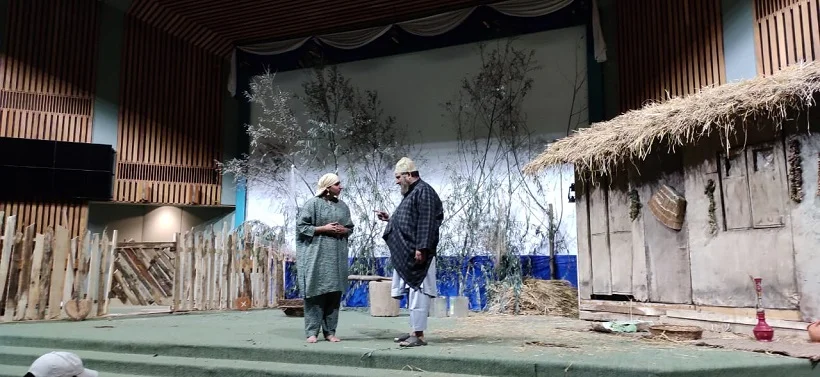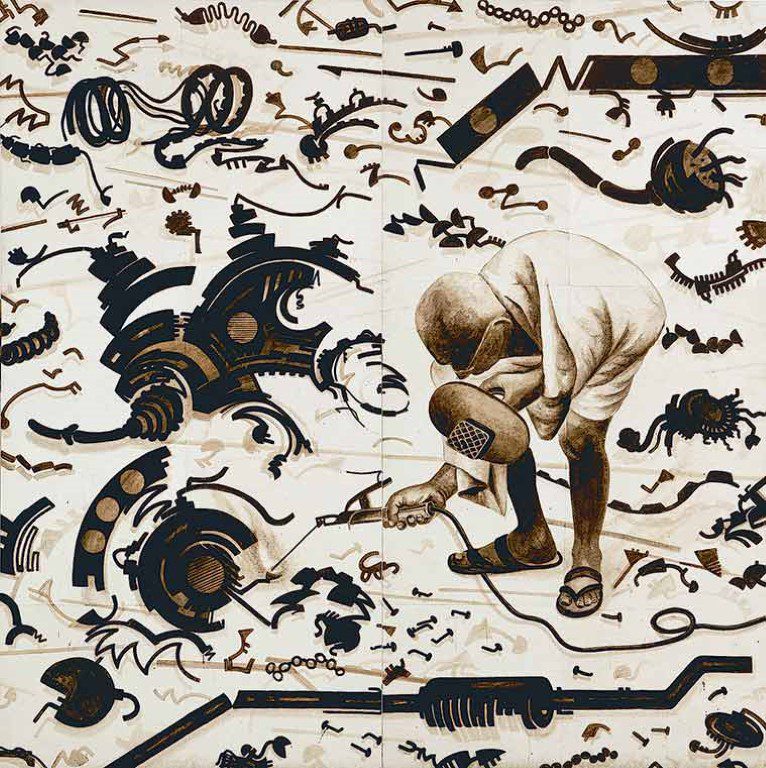In an effort to revive the cultural heritage lost during the grip of militancy in Kashmir over the past three decades, a seven-day theatre festival organised by Kashmiri cultural NGO Vomedh is currently underway. The festival aims to breathe new life into the region’s fledgling folk art scene, which has suffered greatly due to the challenging circumstances, and reconnect the youth with their cultural roots.
Vomedh, a 15-year-old organisation that actively promotes the mother tongue and cultural heritage across India, has been at the forefront of efforts to preserve and revive Kashmiri traditions. Their latest initiative, the theatre festival, serves as a platform to showcase leading lights of Kashmiri theatre and promote the use of the mother tongue, bridging the gap between the younger generation and their local culture.
The festival, featuring seven plays, focuses on folk arts to address the growing disinterest of the youth in this traditional form of expression. It commenced with captivating performances of “Band paether” and “Bakerwal paether,” incorporating storytelling through folk dance to depict the rural life of Kashmir. These performances, with their vibrant display of culture and language, set the tone for the rest of the festival.
Ayash Arif, a respected veteran theatre and television actor, emphasised the importance of such festivals in providing a platform for artists to showcase their talent. Arif believes that attracting a younger audience interested in local culture and language is crucial to preserving and revitalising the folk art scene. The prolonged period of turmoil in Kashmir had halted cultural activities, resulting in a disconnection between the youth and their local culture and language. The theatre festival serves as a means to reignite the cultural movement and bring back the abundance of talent present in colleges and universities.
Bashir Ahmad Bhagat, a Band Paether artist, highlighted the challenging circumstances faced by theatre artists during the years of turmoil. Performing opportunities were severely limited, leaving many talented artists confined to their homes. However, with the situation improving, the theatre has made a comeback, providing a renewed sense of purpose and the opportunity to spread happiness through their craft. Bhagat strongly believes that the Kashmiri language will flourish when the younger generation appreciates and embraces folk art in their mother tongue.
Midhat Nazir, an upcoming Roff artist, emphasised the significance of theatre festivals in promoting culture and providing a platform to showcase language and heritage. Such programs contribute to the preservation and promotion of the Kashmiri language and culture, allowing artists to proudly represent their traditions and foster a renewed appreciation among the wider audience.
The seven-day theatre festival organised by Vomedh represents hope for the fledgling folk art scene in Kashmir. As leading lights of Kashmiri theatre take the stage, the festival acts as a catalyst for the revival of cultural heritage. By connecting the youth with their mother tongue and providing a platform for artistic expression, the festival fosters a sense of pride and belonging among the people of Kashmir. As the region emerges from the shadow of militancy, the celebration of local culture and language becomes a powerful tool in rebuilding a strong and resilient community.
The festival serves as a reminder of the rich cultural heritage that Kashmir possesses and encourages the younger generation to embrace their roots. Through the revival of folk arts, the festival ignites a renewed interest in traditional expressions of art and storytelling, ensuring that the cultural wealth of the region is preserved for generations to come.
Feature Image: File photo of Theatre play in Srinagar. Courtesy: Kashmir Observer
Reviving the Legacy: Kashmiri Artisan Mohammad Aslam Bhat Saves the Dying Craft of Copperware. To read Click Here

Contributor






